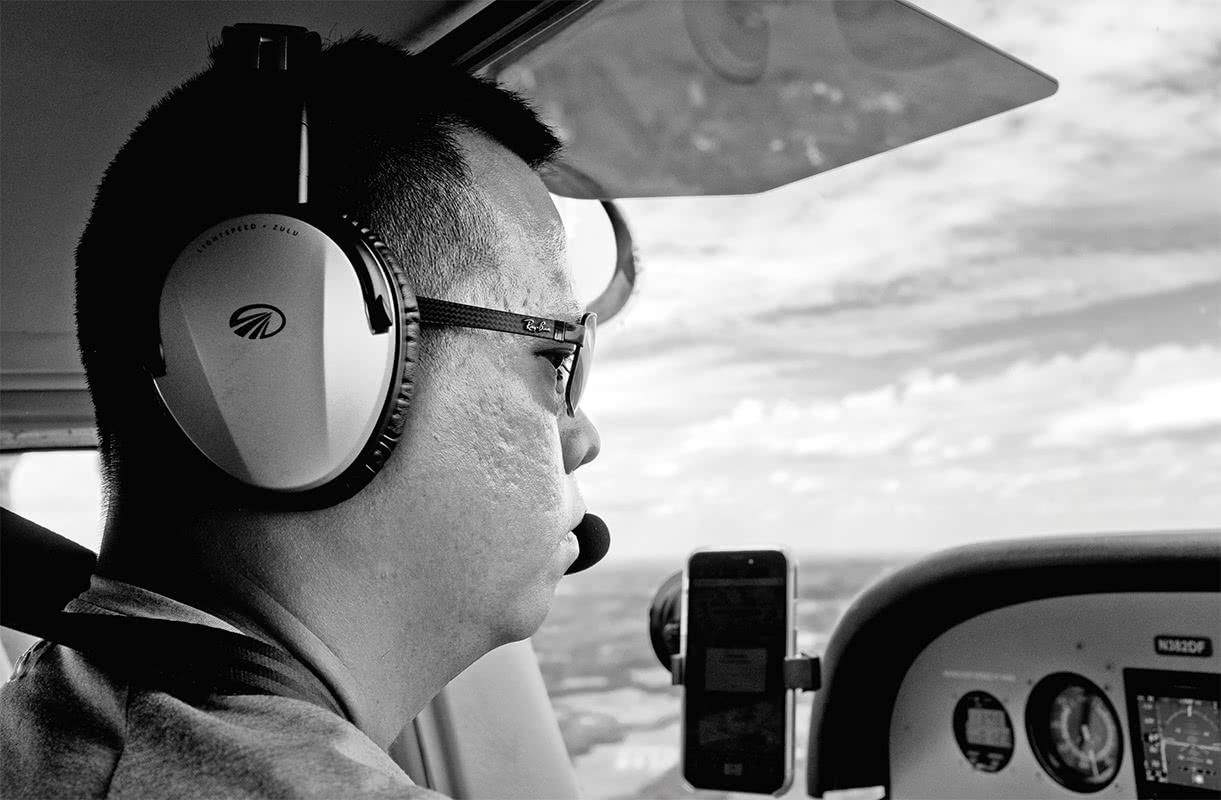Kerry Tan, Ph.D., shares his insights on the airline industry
Loyola economist looks to the sky
Kerry Tan, Ph.D., associate professor of economics at Loyola’s Sellinger School of Business and Management, specializes in industrial organization and applied microeconomics with a focus on strategic behavior in the airline industry. He has published academic research that analyzes competition in the airline industry and regularly serves as an expert source to The Washington Post, Condé Nast Traveler, NPR, and other national media. Here Tan shares his insights on the state of airline affairs.
What interests you about the airline industry?
The airline industry is always evolving and provides real-world context for several theoretical economic models. Initially, I was interested in studying why different passengers pay different prices to fly on the same flight. I then became intrigued at the effect of consolidation in the airline industry through mergers and vertical integration. Recently, I have been interested in operational issues, particularly as they relate to the causes of delays and cancellations.
How has COVID-19 changed the airline industry?
COVID has drastically changed the economics inherent in the airline industry. From a demand side, there was an initial drop in passengers interested in flying due to a general concern over the potential safety risks of flying. There’s just no feasible way to socially distance people on a plane. However, as travel restrictions began to be lifted, we’ve recently seen a huge spike in pent-up demand to travel both domestically and abroad. From the supply side, airlines had been experiencing a pilot shortage even before the pandemic. During the pandemic, airlines sought to reduce their workforce by furloughing their flight crew. Many pilots ultimately decided to change career tracks or retire early.
 Kerry Tan has more than an academic interest in flying—he’s also a pilot! Photo credits: Jonathan Malis.
Kerry Tan has more than an academic interest in flying—he’s also a pilot! Photo credits: Jonathan Malis.
How long will it take for airlines to recover from the effects of COVID?
There are two things airlines can do to improve the scheduling issues. One would be to reduce the number of scheduled flights to a more sustainable level. However, airlines have determined that it is more profitable to schedule an elevated number of flights and hope that the weather cooperates. Second and more realistically, airlines can hire more pilots. We are seeing this happen now as airlines are partnering with more flight schools or are even opening their own flight schools. However, it can take a few years for someone to obtain the training and experience required to become an airline pilot, so I foresee schedule imbalance issues to last for some time.
How does Loyola’s location in a transportation hub benefit the University?
Loyola is fortunate to be located near Baltimore-Washington International Thurgood Marshall Airport, which serves over 27 million passengers a year. This makes it easier for students and their families to travel between their hometown and campus. My research has shown that the presence of a low-cost carrier like Southwest Airlines puts downward pressure on prices, so we surely benefit in the number of destinations and how much we pay, whether we fly with Southwest or a rival airline.
What can students learn about business from the airline industry?
What worked for companies in the past is not necessarily what will work in the future, so students can look to the airline industry to learn how businesses need to be able to quickly adapt to market changes. With more meetings occurring virtually, business travel stumbled and has not yet fully recovered. One trend that we are currently seeing in the industry is that airlines are starting to focus more on leisure routes in response to these changes in consumer preferences regarding where they want to travel.